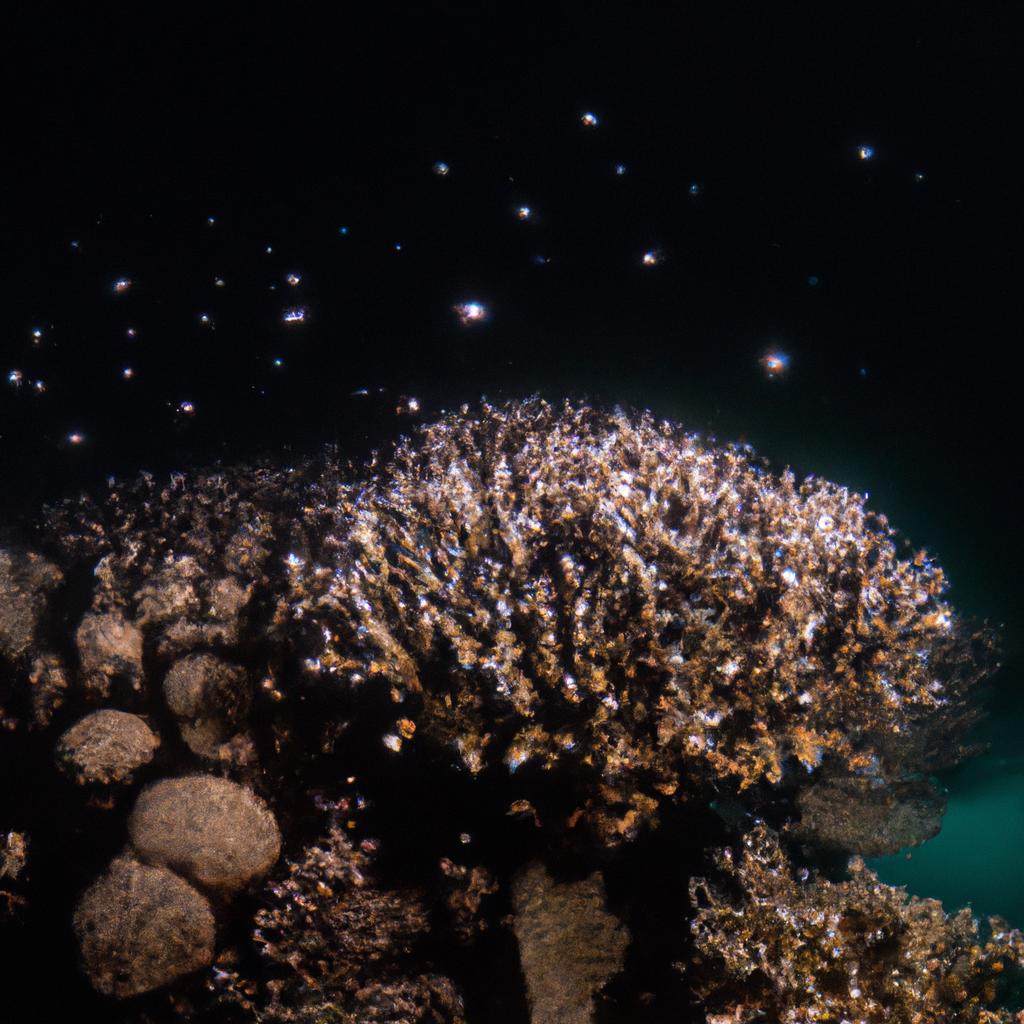Coral reefs are not simply underwater landscapes; they are vibrant and diverse ecosystems that teem with life. These magnificent habitats house a stunning array of marine creatures, ranging from small fish to enormous sharks, and offer essential resources for millions of people. Unfortunately, these vital ecosystems are under threat from pollution, overfishing, and the effects of climate change.
In this article, we will embark on an exploration of the captivating beauty and mystery of coral reefs at night. When the sun sets, a spectacle unfolds beneath the waves, revealing a whole new cast of characters. From bioluminescent organisms that light up the darkness to nocturnal predators, a captivating world awaits discovery.
What Unfolds as Night Descends?
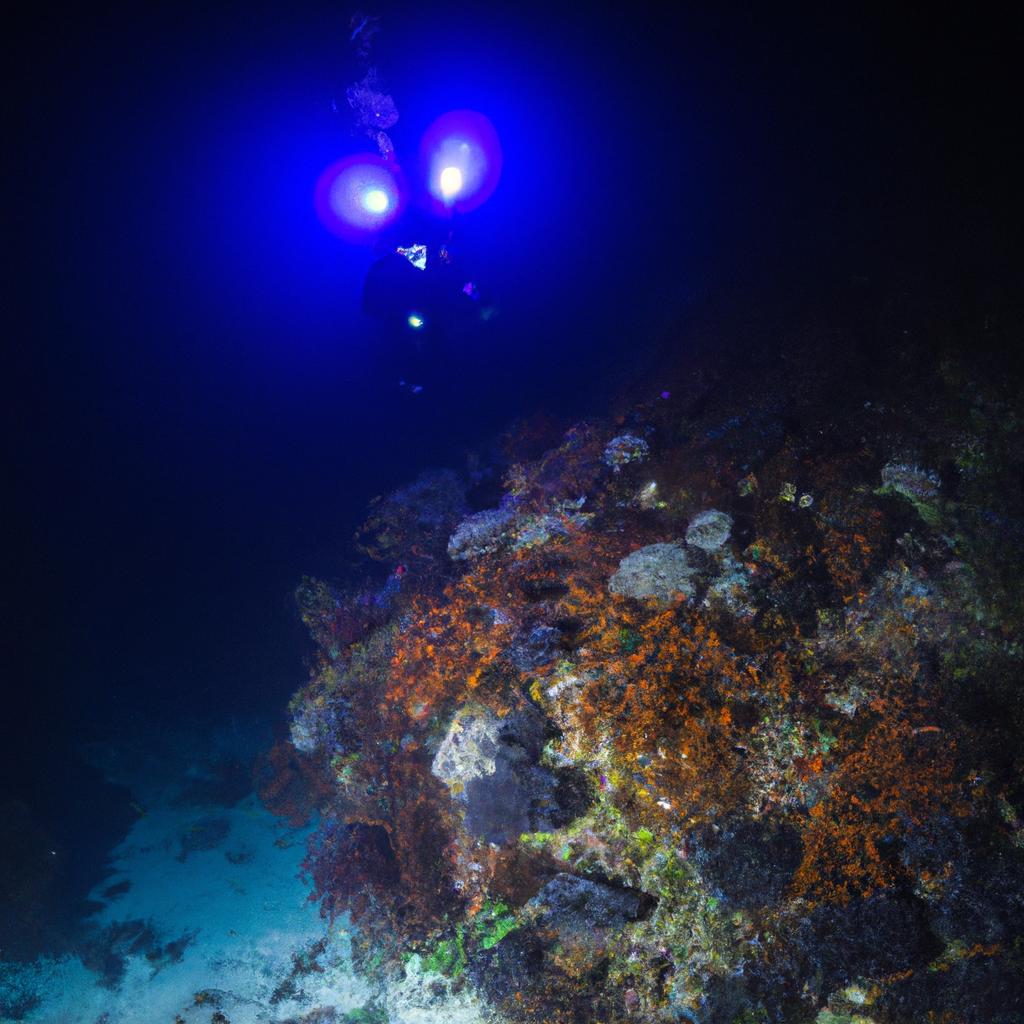
The Reef Comes Alive at Night
With the setting sun, the coral reef encounters a transformative moment. Daytime residents retreat to their hiding places, paving the way for a host of nocturnal creatures to emerge. Crustaceans, mollusks, and a diverse range of fish species venture out to hunt and feed, creating a dynamic and vibrant ecosystem that is nothing short of awe-inspiring.
Bioluminescence Lights Up the Night
One of the most mesmerizing aspects of coral reefs at night is the phenomenon of bioluminescence. Many marine organisms possess the unique ability to produce light, casting a stunning display of colors and patterns that seem almost otherworldly. Bioluminescent plankton, for instance, can create a shimmering blue-green glow that illuminates the surrounding water. Meanwhile, bioluminescent fish and jellyfish mesmerize observers with their array of captivating colors and patterns.
The Importance of Nocturnal Creatures
While the colorful and charismatic species that inhabit coral reefs during the day are well-known, the significance of nocturnal creatures is often overlooked. These creatures play a critical role in maintaining the health and balance of the reef ecosystem, regulating prey populations and serving as food for larger predators. Without these nocturnal hunters, the entire ecosystem would be thrown off balance, leading to potential collapse.
Join me in the next section as we continue our exploration of the wondrous beauty hidden within coral reefs at night and delve deeper into the fascinating species that call these ecosystems home.
Discovering the Beauty of the Reef at Night
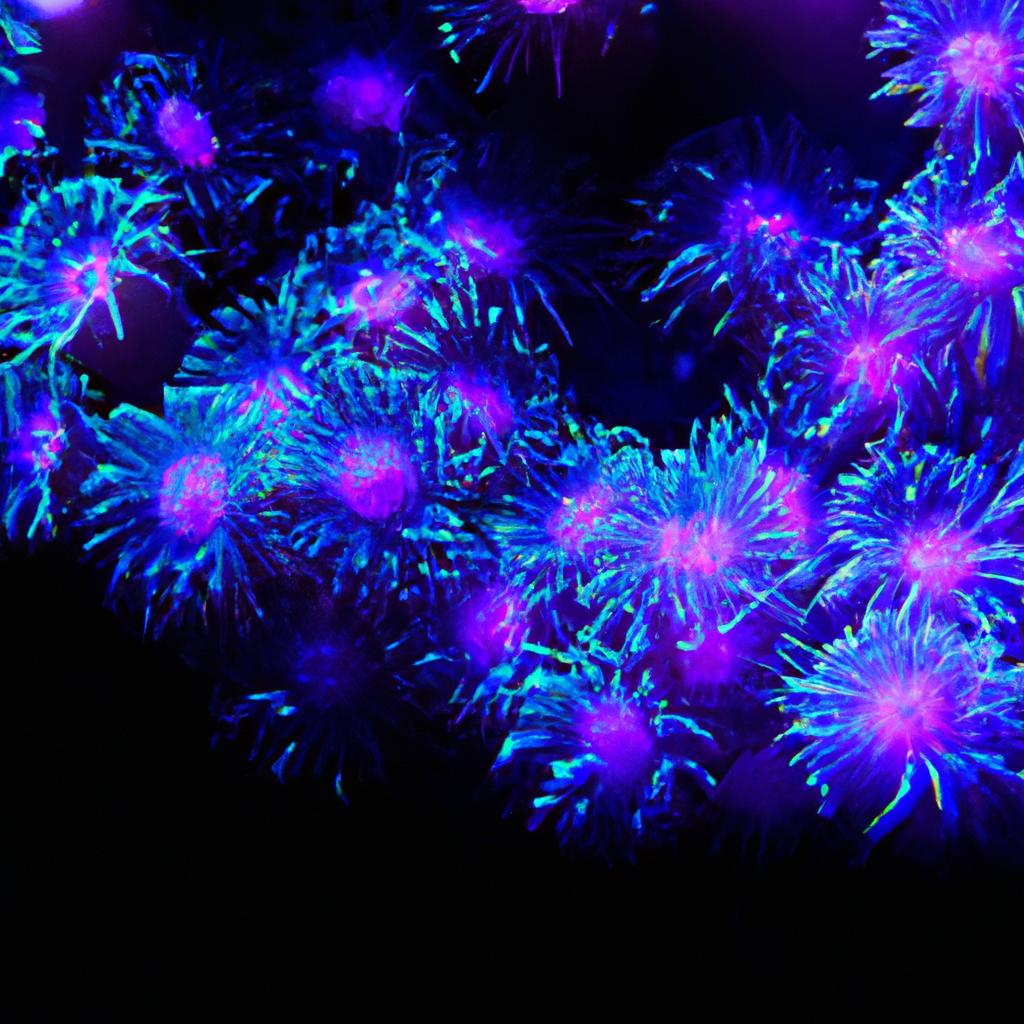
As the sun sets, coral reefs undergo a breathtaking transformation into a magical wonderland of lights and colors. Bioluminescent organisms like plankton and jellyfish illuminate the waters with dazzling shades of blue and green. The gentle glow of moonlight also plays a crucial role in illuminating the reef, creating an atmosphere of peace and serenity.
At night, the reef becomes a stage for an entirely new set of inhabitants. Nocturnal species such as octopuses, eels, and lobsters emerge from their hideouts to scavenge and hunt. These creatures often exhibit heightened activity and aggression, offering a unique opportunity to observe their behavior.
One of the most spectacular sights on a coral reef at night is the spawning of coral. This remarkable event occurs once a year, displaying a spectacle of color and movement. Millions of tiny coral polyps release their eggs and sperm into the water, forming a cloud of life that drifts with the currents.
Overall, the beauty of coral reefs at night is a testament to the wonders of the natural world. However, it is imperative to remember that these fragile ecosystems face numerous threats, and concerted conservation efforts are essential for their survival.
The Risks of Night Diving
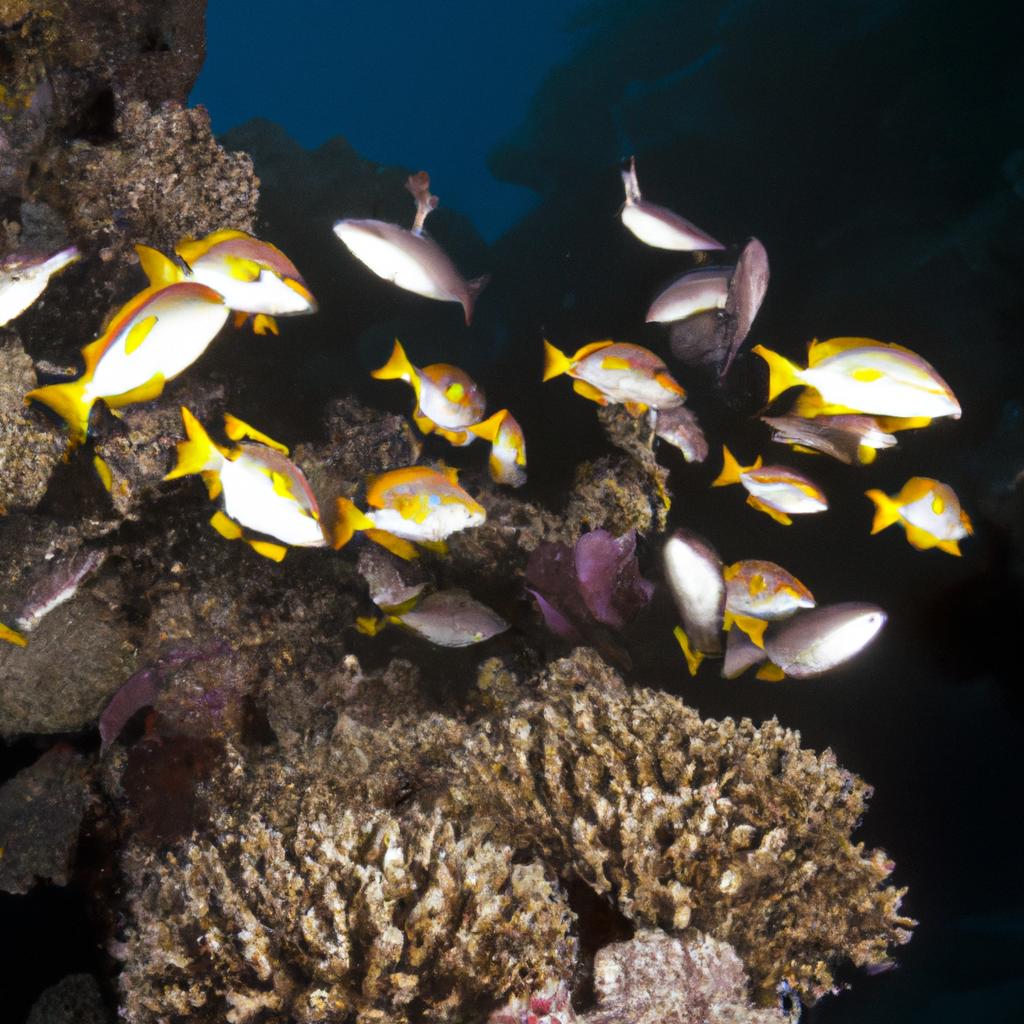
Night diving can be an exhilarating and unforgettable experience, but it is not without risks. Diving at night requires different skills and equipment compared to daytime diving, and it is crucial to be aware of the potential dangers before taking the plunge.
Potential Risks of Night Diving
One of the most significant risks of night diving is reduced visibility. Even with a powerful dive light, it can be challenging to see everything around you, making it easy to become disoriented or lost. Additionally, many nocturnal creatures are more active at night, which can increase the risk of encounters with potentially dangerous animals like sharks or jellyfish.
Other potential dangers include equipment failure, exhaustion, and hypothermia. Without adequate preparation, night diving can be a challenging and even perilous activity.
Safe and Responsible Night Diving
Despite the risks, night diving can be a safe and enjoyable experience if you take the necessary precautions. Here are some tips to help you stay safe and responsible while diving at night:
- Always dive with a buddy and remain close to each other throughout the dive.
- Use a powerful dive light to enhance visibility and navigate safely.
- Thoroughly check your equipment before each dive and ensure you have backup lights and other safety gear.
- Dive only within your limits and in conditions that you feel comfortable with.
- Respect the underwater environment, avoiding touching or disturbing marine life.
By adhering to these guidelines, you can embrace the thrill of night diving while minimizing risks and ensuring a safe and enjoyable experience. Remember, your safety and that of your dive buddy should always be the top priority.
In Conclusion
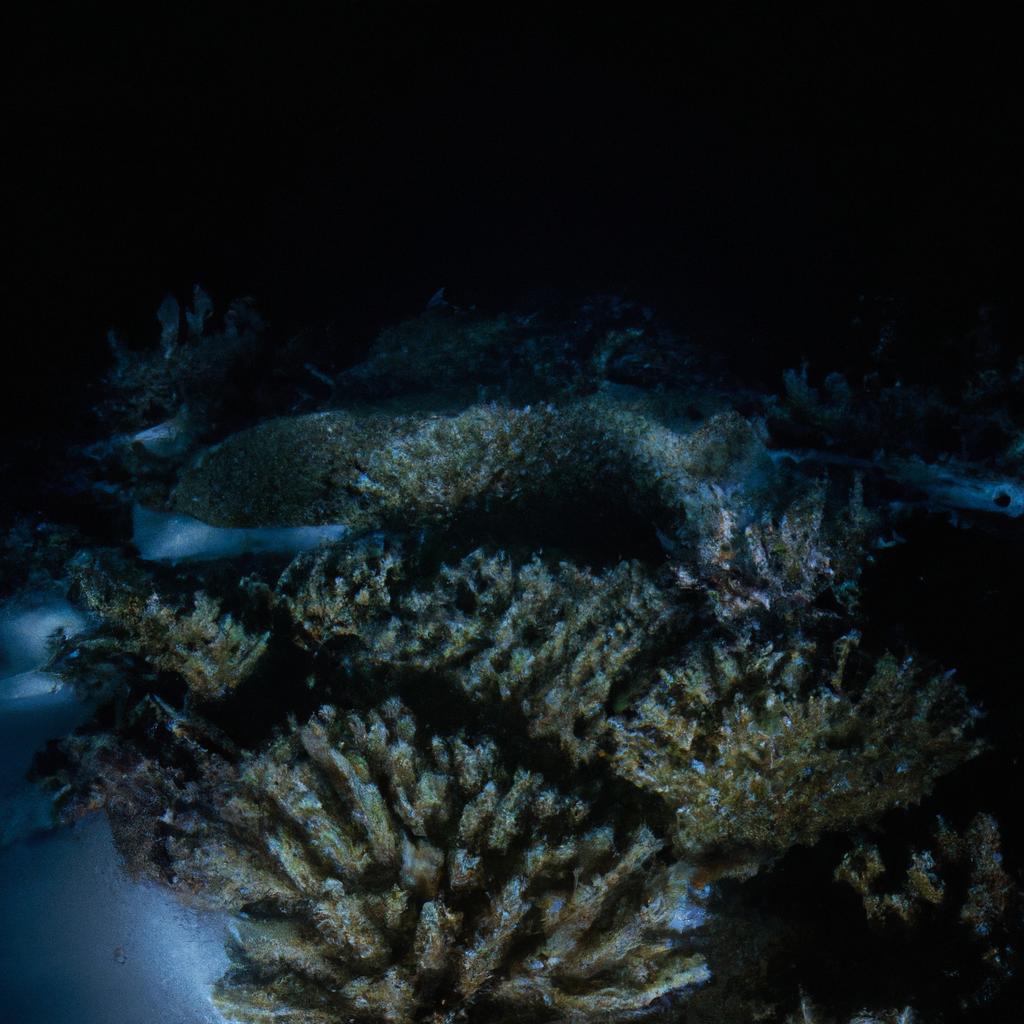
In conclusion, exploring coral reefs at night is a truly magical experience. The vivid underwater colors and the remarkable adaptations of nocturnal creatures offer something new to discover with each dive. However, it is crucial to remember that coral reefs are fragile ecosystems facing significant threats, and it is our responsibility to take action to protect them.
As we have seen, coral reefs are vital not only for their ecological significance but also for their economic and cultural value. They provide resources and services essential to millions of people, from food and medicine to tourism and recreation. Nonetheless, the threats they face are considerable, necessitating collaborative efforts to address and mitigate them.
Conservation endeavors, including pollution reduction, marine habitat protection, and the promotion of sustainable tourism, are pivotal to securing the survival of these incredible ecosystems. By taking action now, we can help safeguard coral reefs for generations to come.
At TooLacks, we are committed to raising awareness about critical environmental issues like coral reef conservation. Through sharing information and inspiring action, we aspire to make a positive impact on the world around us. Join us in our mission to protect the planet and all its wonders. TooLacks
